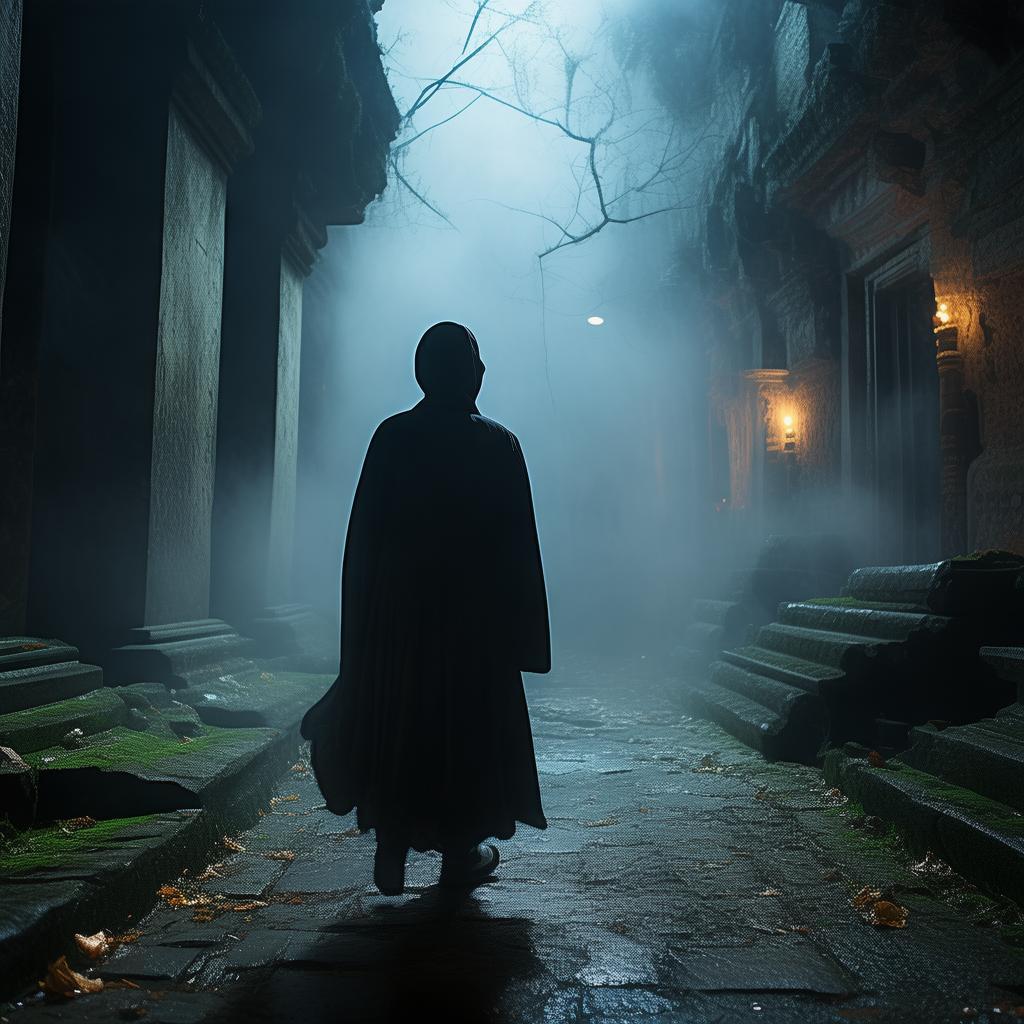The Resonant Echoes of the Three Gorges
In the heart of China, where the Yangtze River carves its way through towering cliffs and lush valleys, lies the massive Three Gorges Dam. It is a marvel of modern engineering, a testament to human ingenuity, and a source of both pride and controversy. Yet, nestled within its walls, there exists a resonance that transcends the physical, a ghostly symphony that has long been whispered about by locals and tourists alike.
Liu Wei was a renowned violinist, his fingers dancing across the strings with a deft precision that left audiences breathless. His latest project was to record a solo album inspired by the natural beauty and cultural significance of the Three Gorges. It was to be his magnum opus, a piece that would showcase his unique ability to capture the essence of a place through music.

As he ventured deeper into the heart of the Gorges, Liu Wei felt the pull of the river's ancient tales. He spent days walking along the riverbanks, collecting sounds and stories, until one evening, as the sun dipped below the horizon, he found himself standing at the edge of the dam.
The air was thick with humidity, and the water below was a relentless, dark expanse. Liu Wei sat down and played a simple melody on his violin, his eyes closed, lost in the music. The river responded with a haunting hum, as if it were a living entity, echoing his notes back to him.
It was then that he heard it—a faint, melodic hum, different from anything he had ever heard. It was like the river itself was singing, a song of loss and sorrow, of a people displaced and their spirits bound to the land. Liu Wei's heart raced; he knew he had to capture this sound.
He returned to his hotel room that night, unable to sleep. The hum of the river played on his mind, and he decided to compose a piece based on what he had heard. The next morning, he set out with his recording equipment, determined to bring the river's ghostly symphony to life.
Over the following weeks, Liu Wei spent countless hours by the river, recording the sounds, the whispers, the echoes. The piece he was creating was a symphony of the spirit, a haunting melody that seemed to transcend time and space.
As the days passed, Liu Wei began to experience strange occurrences. He would hear the hum of the river even when he was alone in his room, and sometimes, when he closed his eyes, he could see visions of the past—people in traditional attire, weeping as they were forced from their homes by the rising waters.
The music was coming together, but it was more than just a composition for Liu Wei. It was a connection to the spirits of the displaced, a bridge between the living and the dead. He felt a strange sense of purpose, as if he were being guided by something greater than himself.
One evening, as he played his latest recording, Liu Wei felt a presence behind him. He turned to see an old woman standing in the doorway, her eyes filled with sorrow and recognition. "You are the one," she said, her voice trembling. "You have heard our song."
Liu Wei nodded, not knowing what to say. The woman approached him, her hand outstretched. "We are the spirits of those who once lived here. Our land was taken from us, but our song will never be silenced. You have captured it, and now you must decide what to do with it."
Liu Wei reached out to take her hand, and in that moment, he felt a surge of energy course through him. The woman's eyes sparkled with a light that seemed to come from within. "We need you to play this song for the world," she whispered. "Let them hear our voices, and maybe, just maybe, they will understand."
Days turned into weeks, and Liu Wei's piece began to take shape. It was a symphony of loss and hope, a testament to the resilience of the human spirit. The music was powerful, moving, and haunting, and as he played it for the first time in front of a live audience, the room was silent, the tension palpable.
The music reached the hearts of many, and soon, it went viral. People from all over the world listened, some moved to tears, others inspired to action. Liu Wei's piece became more than just a composition; it became a symbol of the fight for justice and the preservation of cultural heritage.
In the end, the ghostly symphony of the Three Gorges served as a reminder of the deep connection between humanity and the land, and the importance of respecting the past to ensure a brighter future. Liu Wei had not only captured the spirit of the river but also the very essence of what it means to be human.
As the story of his music spread, Liu Wei felt a profound sense of fulfillment. The spirits of the displaced had found a voice, and he was honored to be their vessel. The Resonant Echoes of the Three Gorges had become more than just a symphony; it was a testament to the enduring power of music and the human soul.
✨ Original Statement ✨
All articles published on this website (including but not limited to text, images, videos, and other content) are original or authorized for reposting and are protected by relevant laws. Without the explicit written permission of this website, no individual or organization may copy, modify, repost, or use the content for commercial purposes.
If you need to quote or cooperate, please contact this site for authorization. We reserve the right to pursue legal responsibility for any unauthorized use.
Hereby declared.









